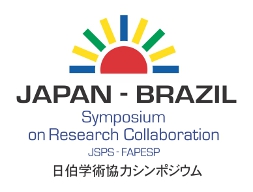About
FAPESP is a public taxpayer-funded foundation that has the mission of supporting research in all fields of knowledge within the State of São Paulo, Brazil. FAPESP is aware that the very best research may be delivered by working with the best researchers internationally. Therefore, it has established partnerships with funding agencies, companies, higher education and research organizations in other countries and has been encouraging scientists funded by its grants to further develop their international collaboration.
As part of these efforts and also in the context of the celebrations of its Golden Jubilee, the São Paulo Research Foundation (FAPESP) organized seminars and exhibitions in Washington, Morgantown and Cambridge, in United States, Toronto, Canada and Salamanca and Madrid, in Spain. In 2013, symposiums will be held in Japan, China, Europe, and United States.
In Japan, the Japan-Brazil Symposium on Research Collaboration is being held in collaboration with the Japan Society for the Promotion of Science (JSPS), an independent administrative institution, established by way of a national law for the purpose of contributing to the advancement of science in all fields of the natural and social sciences and the humanities. JSPS plays a pivotal role in the administration of a wide spectrum of Japan's scientific and academic programs. While working within the broad framework of government policies established to promote scientific advancement, JSPS carries out its programs in a manner flexible to the needs of the participating scientists. JSPS was founded in 1932 as a non-profit foundation through an endowment granted by Emperor Showa. JSPS became a quasi-governmental organization in 1967 under the auspices of the Ministry of Education, Science, Sports and Culture (Monbusho), and since 2001 under the Ministry of Education, Culture, Sports, Science and Technology (Monbukagakusho).
This event aims at strengthening the links between Brazilian and Japanese investigators with the objective of promoting better research to benefit the population of both countries. As part of the event, an exhibit called Brazilian Nature about the Brazilian biodiversity will be inaugurated on March 14 at the Brazilian Embassy in Tokyo.
ABOUT FAPESP
São Paulo has a population of 40 million and generates 35% of Brazil’s GDP. Under the state constitution 1% of all state taxes are appropriated to fund FAPESP. The stability of the funding and the autonomy of the foundation allow for efficient management of the resources, having a sizable impact: while São Paulo is home to 22% of the Brazilian population and 30% of all scientists holding a doctorate in the nation, the state responds for 52% of the scientific articles published in international journals coming out of Brazil.
The foundation works in close contact with the scientific community: all proposals are peer reviewed with the help of panels composed of active researchers from the specific area. Many times scientists in São Paulo submit proposals for programs to the foundation which are carefully analyzed and, if deemed strong in academic terms, are shaped by the foundation into research programs that will constitute a set of related research projects in a given area.
Since FAPESP’s mandate is to foster research and scientific and technological development in the state, ideas for programs that couple world class research with contributions that will impact social problems are welcome. The foundation supports large research programs in biodiversity and in information technology.
FAPESP invested R$ 938 million (US$ 560,4 million) in research projects in 2011. One third of this value went to fellowships for graduate and undergraduate students. About 60% went to exploratory academic research. The remaining was invested in application-oriented research, in many cases carried out by small businesses or in joint research between academia and industry. The percentage invested in applied research has been growing in recent years, consistent with the foundation’s mandate to foster scientific and technological development in the State of São Paulo.
FAPESP has cooperation agreements with national and international research funding agencies, higher education and research institutions and business enterprises in many countries. In the United Kingdom, the foundation maintains, among others, agreements with Research Councils UK, the British Council, King’s College London and the universities of London, Edinburgh, Surrey, Southampton, Nottingham, Birmingham and York. In the U.S., FAPESP has agreements with the National Science Foundation, Agilent Technologies, Boeing, Fulbright, MIT, Microsoft Research and several other institutions.
In Canada, FAPESP has agreements with the Agence Universitaire de la Francophonie (AUF), the Consortium of Alberta, Laval, Dalhousie and Ottawa (CALDO), ISTPCanada, the Natural Sciences and Engineering Research Council of Canada (NSERC) and the universities of Toronto, Western Ontario, McMaster, Simon Fraser, Concordia, York, Ryerson, Victoria and the The University of Ontario Institute of Technology.
More about FAPESP’s international collaboration initiatives and other information is available at: www.fapesp.br/en.







